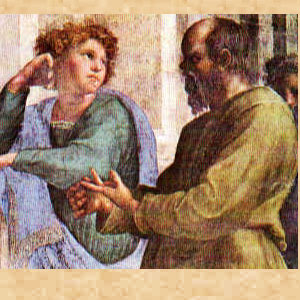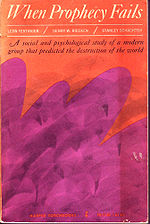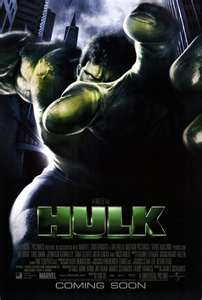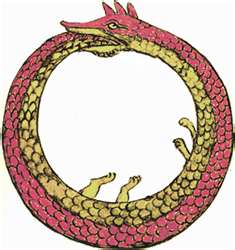You’re sprinting and stumbling through a thick, dark forest. Gun cocked, finger on the trigger. You’re fleeing a zombie horde. You want to survive. They want to eat you. You trip on a rotten limb, tumbling to the ground. Looking up, you’re face-to-face with a zombie. It can’t move, though. A broken leg, severed arm. It’s basically a piece of animated flesh, writhing madly, but not a true threat. You can skirt by it, no problem. What do you do?
Season Two of The Walking Dead has brought the zombicide issue to the fore. Is it ever wrong to kill zombies? On a practical, survival level, of course, the answer seems morally unambiguous: If a Walker is after you, self-defense necessitates doing what you have to do.
 Self-defense notwithstanding, let’s explore how the characters in TWD view what they’re doing. What’s their ethical stance? As in all zombie fiction, the dominant position is the kill’em all approach: the living dead aren’t people, which excuses or dismisses any moral qualms one may have about pumping a few shotgun rounds into the side of a Walker’s head. But TWD is too thoughtful a series to let this issue go unexamined.
Self-defense notwithstanding, let’s explore how the characters in TWD view what they’re doing. What’s their ethical stance? As in all zombie fiction, the dominant position is the kill’em all approach: the living dead aren’t people, which excuses or dismisses any moral qualms one may have about pumping a few shotgun rounds into the side of a Walker’s head. But TWD is too thoughtful a series to let this issue go unexamined.
The existential and moral status of zombies themselves, which has lurked in the background of the series since Season One, moved front and center as we reached the climax of the middle of this season—brought to a head by Herschel, patriarch of the farm. As you’ll recall, Herschel doesn’t share the kill ’em all approach that Rick and company had pretty much taken for granted—and who could blame them? After what happened at their camp and in Atlanta, there’s been little time and reason to contemplate the possible personhood of the herds of Walkers chomping at the bit to kill them.
But, since farm life has slowed things down and afforded the time to think, the issue has slowly but surely lumbered and lunged out into the open. It was just one of the crises interwoven into the drama, but, by Episode Seven, the status of zombies became the key issue, the breaking point in the tension between the main characters and their hosts.

Rick and Herschel's Moral Debate
If you were like me, you couldn’t believe what Herschel was hiding was in the barn. At first, I was with the rest of the gang who thought he was either delusional or up to something sinister. It’s easy to react like Shane and dismiss Herschel’s view. A Walker is a Walker, and the only good Walker is a dead Walker. When Rick confronted him, however, the conviction in Herschel’s reasoning and ethical stance was interesting. From his perspective, a zombie is just a sick human being. What if zombiehood could be cured? What if someone comes up with a serum or antidote to the disease or whatever the TWD mythology eventually puts forth as the cause of the zombocalypse? Behind the evil eyes and pale, rotten skin, Herschel sees a human being waiting to be saved. If that’s your philosophy, then killing a zombie when you don’t have to is murder. ‘Personhood’ is a tougher thing to verify than you might think. We all walk around assuming the people around us have a subjective awareness of the world—have feelings and memories and intelligence, the ability both to make decisions and be held responsible for them. This assumption frames one’s experience of reality. You can criticize or condemn your fellow human beings for their improprieties—but you don’t feel the same way towards your car or laptop if it let’s you down. You may, for a second or two, get angry at the laptop for freezing up—might even smack it a few times—but that’s just an instinctual projection of your own emotions. If you actually think your laptop is trying to undermine you, then I’ll post a link for the psychiatrist you need to consult.
It’s okay to hit computers because they don’t have any feelings (yet). But how do you know other people have feelings? Sure, they appear to—they have the body language and can speak about intentions and inner states—but that, too, could be just an appearance. After all, that’s just behavior. It could be a simulation of consciousness, a simulacrum of selfhood. You can’t get ‘inside’ somebody’s head and experience the world from their point of view. We don’t have Being John Malkovich portals into the subjectivity of others (yet). Philosophically and scientifically speaking, the only state of consciousness you can be sure of is your own.
Rene Descartes, the father of modern philosophy, pointed this out in the 17th century, and it’s been a tantalizing issue ever since. When Descartes said cogito ergo sum—I think, therefore I am—he was trying to establish a rock solid foundation for philosophy and science, but leave it to a Frenchman to lay an intellectual foundation in quicksand and produce the opposite of what he intended. The problem with cogito is that—unless you assume the same things Descartes did about God, language, and math—you can’t really be sure about the existence of other cogitos or even the world outside your own head. What one experiences could be like a dream or a fake reality conjured up by a Matrix-style evil genius. ‘I think, therefore I am’ opens up a Pandora’s jar of radical skepticism and solipsism.
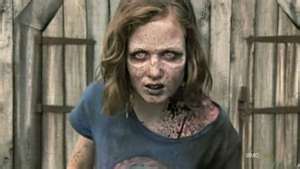 So how do you know that other people are conscious like you and not ‘philosophical zombies,’ i.e. beings which behave like they’re conscious but are in fact only organic machines without actual intelligence and free-will. Contemporary philosopher of mind David Chalmers has made a career of pointing out the deep quirk—the so-called ‘hard problem’—embedded in the modern concept of personhood. Scientifically-speaking, we can only observe and measure objective phenomena. So, what is ‘mind’ to a neurologist? It’s the product of brain states—it’s located in the synaptic mesh of neurons and electrochemical flow of hormones which happens inside the skull, a purely physical thing which can be observed with an fMRI machine.
So how do you know that other people are conscious like you and not ‘philosophical zombies,’ i.e. beings which behave like they’re conscious but are in fact only organic machines without actual intelligence and free-will. Contemporary philosopher of mind David Chalmers has made a career of pointing out the deep quirk—the so-called ‘hard problem’—embedded in the modern concept of personhood. Scientifically-speaking, we can only observe and measure objective phenomena. So, what is ‘mind’ to a neurologist? It’s the product of brain states—it’s located in the synaptic mesh of neurons and electrochemical flow of hormones which happens inside the skull, a purely physical thing which can be observed with an fMRI machine.
This theory was dramatized in Episode Six of Season One by Dr. Jenner at the CDC facility. When he shows Grimes and the gang an actual transformation from human to Walker using (what looks like) an fMRI, Dr. Jenner claims the brain images represent all that one is—the sum total of your memories and dreams, the hopes and fears which define you as a person—and the death of the brain is the irrevocable end of that identity. What is revived through zombification is not that person—it’s not even human. In other words, you are your brain. Brain dead equals you dead. The zombie that emerges may resemble you in some way—it may move its eyes and limbs as if it’s a being with some kind of conscious intentions—but it’s not. At least, that’s Dr. Jenner’s theory, and, up until we meet Herschel, nobody on the show seems to disagree or question it.
Philosopher Thomas Nagel wrote a famous essay on the issue called “What Is It Like to Be a Bat?” which argued we shouldn’t reduce mindfulness to purely physical, objective descriptions because such descriptions, by definition, leave out the very thing we’re trying to understand, namely, what is it like to be that being, what it is like to have that mind. We’re right back in Descartes’ quicksand. The Copenhagen interpretation of quantum physics notwithstanding, we seem to be able to explain everything in nature, at least in principle, in physical, materialist terms, except for the very thing we’re using to explain everything else in nature, i.e. our own minds.
These days the debate has become divisive, even ideological. Which side are you on? Are you a materialist—do you believe the mind is either caused by brain states or so closely correlated to them as to be functionally indistinguishable—or are you still haunted by Descartes’ cogito and believe the mind is not just an illusory ghost in the machine? Do you believe there’s something irreducible to the self, maybe even soulful or spiritual? If you do, you’d be labeled a dualist, which, in contemporary philosophy of mind, is a euphemism for superstitious.
I think Herschel’s theory offers another way of approaching the problem, one that sidesteps the Cartesian quicksand. After all Herschel’s not interested in proving scientificallythat he’s right about zombiehood. For him, it’s a given: the creatures corralled in the barn aren’t soulless ghouls who can be exterminated with impunity. They’re family members and neighbors who happen to be sick and might someday be cured. He can’t kill them. What’s intriguing about his approach is how it bypasses the metaphysical problem in favor of the ethical question. If you can’t prove beyond a shadow of a doubt that zombies aren’t conscious—devoid of some sliver of humanity swirling around inside their skulls—then isn’t Herschel’s theory a more appropriate moral response, a more humane approach?

Zombies on leashes?
If a zombie attacks, and you can subdue it with out scattering its brains across the grass, then why not leash it and put it in the barn like Herschel did? It’s an ethically-complex question with implications that go beyond the do’s and dont’s of zombocalypse survival. It answers the question of consciousness and selfhood not by getting bogged down in the metaphysical quicksand, but by recognizing the ambiguous metaphysics and essentially saying, until you neurologists and philosophers get a better grip on the issue, we’re going to treat the zombie-other as if it’s a conscious being deserving of humane and dignified treatment. The show roots Herschel’s ethics in his religious beliefs, his faith. Agnostic or atheist viewers might find this a facile cop out, more a symptom of intellectual weakness than a sign of moral integrity. But I don’t think Herschel’s ethics should be dismissed as merely the product of old-timey superstitions. In a situation where there isn’t absolute certainty—where empirical observation and rational explanations can give you two valid, but logically irreconcilable descriptions—isn’t some kind of faith necessary? The zombie dilemma on The Walking Dead echoes the actual debate going on in neurology and philosophy of mind and reminds me of the lines from Albee’s Who’s Afraid of Virginia Wolf? about truth and illusion. We don’t know the difference…but we must carry on as though we did. Amen.
Herschel has decided to carry on as though the zombies are persons who deserve to be treated with some degree of dignity. His faith justifies his moral stance; it’s an act of religious compassion. Even if zombies seem like enemies, he must love them. If they terrify and enrage him, he must pull the beam from his own eye, judge not, and learn to care for his zombie brothers and sisters—in a way which doesn’t threaten the lives of his non-zombie kin, of course. Hence the leashes and barn accommodations. It may not be room and board at a cozy bed and breakfast, but it’s certainly more humane than Shane’s handgun or one of Darryl’s arrows.
There is something to a Sermon on the Mount ethical approach to such quandaries. If we can’t know with scientific certainty the objective nature of consciousness, we shouldn’t be so quick to jump to conclusions and endorse policies, especially violent ones, which depend on assumptions about subjectivity, or the lack there of. The greatest atrocities in history all begin with dehumanizing the other—by drawing a line between ‘us’ and ‘them.’ Religious beliefs always cut both ways—sometimes they reinforce that line—they sharpen the blade—and sometimes they undermine it by redefining and expanding the definition of what counts as a human being—of who deserves to be treated with respect.
I mean, what Jesus would do to a zombie? Wait, didn’t Jesus become a zombie? (Sorry, couldn’t resist;)
That matters is how you treat the other, the stranger. I think it’s no accident that Herschel is a veterinarian and not a ‘human ‘doctor, which would’ve served his initial plot function—saving Carl—just as well, if not better. As a vet, Herschel has to care about the pain and suffering of creatures whose states of mind he can’t know or prove. He has to carry on just the same. What matters most is not trying to test and determine the degree to which a creature is conscious and then scaling your moral obligations in proportion to that measurement—after all, such a measurement may be in principle impossible—what matters is how you treat others in the absence of such evidence. In short, it depends on a kind of faith, a default assumption which necessitates hospitality, not hostility. In an uncertain world, it’s the right thing to do—not only what Jesus might do, but a logically-consistent, rationally-valid thing to do.
The implications are profound. The perspective we adopt, the stance we assume, defines how we relate to animals and the planet as a whole—to other human beings and ultimately oneself.
Of course, by Episode Eight, Herschel backs away from his radical ethical stance. In a state of despair, he regrets putting them in the barn—says it was his way of avoiding the grief over losing his wife. Maybe so. But something tells me that’s just the despair talking. Whether Herschel returns to his old perspective or embraces a kill ’em all approach, I don’t think the issue itself is dead and buried.
My hope is that it will be raised again, and it’ll have something to do with what Dr. Jenner whispered to Rick at the end of Season One. After all the suicidal doctor told Rick that all the survivors are carrying a latent form of the zombie virus. Maybe they’ll meet another scientist down the road who can cure the plague. If this scenario or something like it plays out, then the show will have to confront the zombies-are-people-too versus kill ’em all question again.

